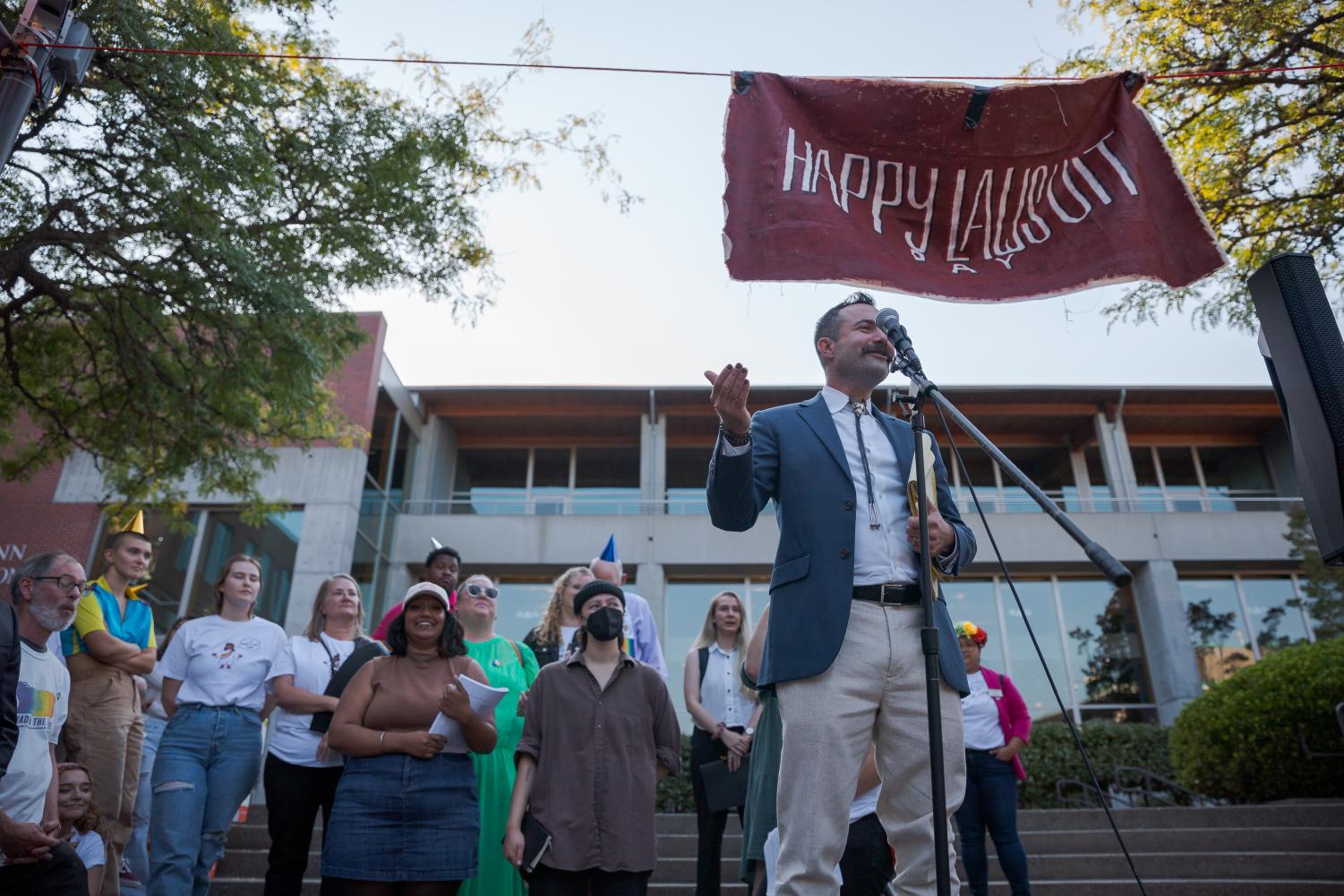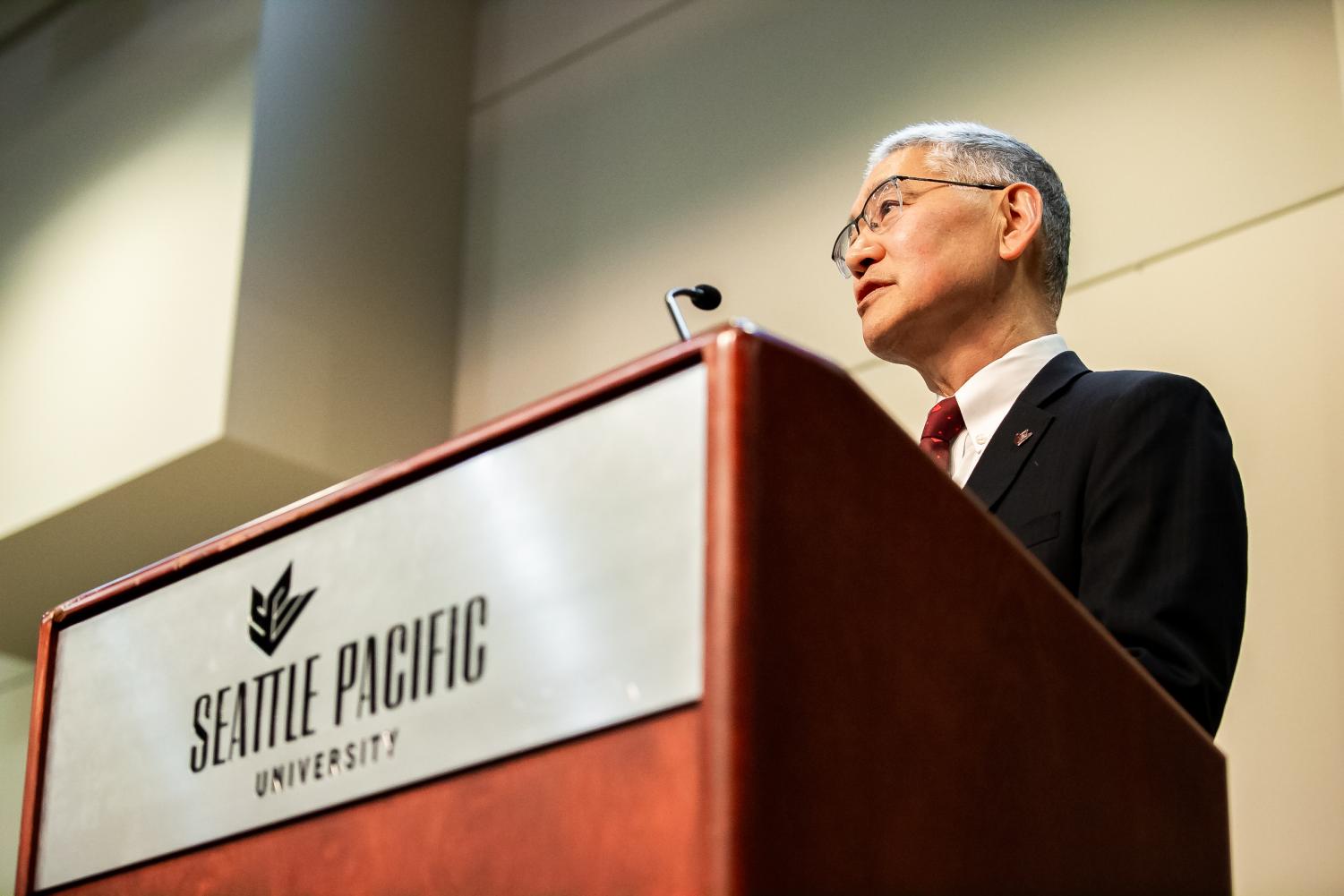Opposition brief filed
Brief requests court to deny defendants’ motion to dismiss
February 7, 2023
On Feb. 6, plaintiffs in the Guillot v Whitehead case submitted an opposition brief to the defendants motion to dismiss and UPEPA motion.

According to the Reporters Committee for Freedom of Press, UPEPA or the Uniform Public Expression Protection Act “was designed to protect against abusive litigation.” These intimidation lawsuits are known as strategic lawsuits against public participation, or SLAPPs.
Defendants in the Guillot v Whitehead case filed a motion to dismiss and UPEPA motion on the grounds of freedom of speech, says Cambria Judd Babbitt, a Seattle Pacific University alumni.
“After commencing our lawsuit, the defendants filed a motion saying that our claim should be dismissed because we were allegedly attacking the board’s constitutionally protected freedom of speech and assembly by calling them out for their actions,” Judd Babbitt said. “However, we strongly believe this is far from the case.”
SPU believes that this lawsuit will do more harm for the university than good and cites that as the reason for their motion to dismiss.
“The Seattle Pacific University board of trustee defendants continue to defend their motion to have this suit dismissed so that both sides are spared burdensome discovery processes and high legal fees should it drag on,” the statement said. “This lawsuit harms SPU by spreading negative and misleading information about SPU that undermines the tireless work of so many dedicated faculty and staff serving students at an institution we love.”
The opposition brief, a 27-page document, argues that SPU is facing financial distress that is threatening the future of the university.
“A small segment of the BOT orchestrated this destruction at the direction of, and for the benefit of, the Free Methodist Church,” the opposition brief said on page one.
It then goes on to claim that many of the board members never had any intention of changing the school’s hiring policy.

On page three is a record of a conversation from May of 2021 between Carlene Brown, the faculty chair at the time, and Dean Kato, the current chair of the board. In this conversation, Brown tells Kato that some on campus believe there are “board members who would rather see this university fail than change the hiring policy,” to which Kato replies, “Yes, there are such board members.”
While defendants filed the motions on the basis of freedom of speech, the opposition brief states that board members have knowingly caused the university harm.
“Our opposition brief highlights how deception and threats do not merit constitutional protection,” Judd Babbitt said. “This brief is our response to the defendants’ attempts to shut this case down by again showing all that SPU has been dragged through and how the actions of the named Board Members have deeply hurt this community and school.”
Yet not everyone agrees that this lawsuit is the best way to pursue change, according to SPU Communications.
“Many faculty and staff – even those opposed to the decisions of the Board of Trustees – recognize the lawsuit as misguided,” SPU states. “SPU also asserts that religious decisions by leaders of faith-based institutions like SPU should not be decided in the court system.”
The opposition brief also says that in 2022, when the LGBTQIA+ work group was looking into options for the school to pursue, the Free Methodist Church had already determined to prevent SPU from changing the hiring policy and that this information was not shared with members of the work group.
Plaintiffs have also requested to depose one current and one former board member, as well as to have access to two memos that are currently hidden behind NDAs.
Ultimately, the opposition brief argues that the plaintiff’s claims are not subject to UPEPA, as the claims made in the lawsuit are allegations of deceit, misrepresentation and threats, which are not protected speech.
“We have our first hearing coming up on Feb. 17, 2023, at 9:00am and hope to have people come out for support – stay tuned for more information,” Judd Babbitt said.



























































































